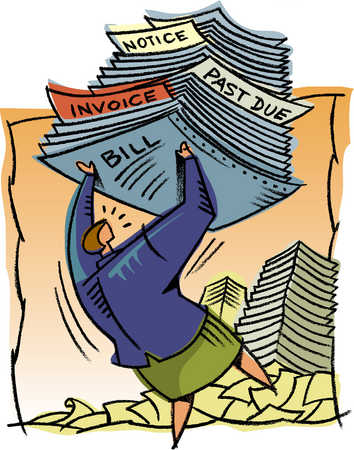If you believe the hype, managed services are recession proof. But here's a confession: I don't believe the hype. I'm hearing from more and more managed service providers (MSPs) that have stacks of unpaid invoices from customers. No doubt, those unpaid invoices hurt MSP cash flow, R&D and business planning.


managed-services
If you believe the hype, managed services are recession proof. But here’s a confession: I don’t believe the hype. I’m hearing from more and more managed service providers (MSPs) that have stacks of unpaid invoices from customers. No doubt, those unpaid invoices hurt MSP cash flow, R&D and business planning. Here are some anecdotes I’ve heard from readers, plus some potential solutions to the unpaid invoice challenge.The spark for this blog entry occurred during dinner with an MSP software executive a few days ago. The executive shared with me the following list of concerns:
More and more small businesses aren’t paying their monthly service fees to MSPs.
The MSPs, in turn, are late paying for SaaS services from the MSP software provider.
The SaaS provider is working hard to offer extended payment options to the MSPs — but the MSPs aren’t holding up their end of the bargain because they don’t know how to “collect” from their end-customers.
Three MSPs (one in California, one in Texas, one in North Carolina) tell me the unpaid invoice issue has grown from a minor annoyance into a major cash flow problem since around May 2009.
It’s a vicious cycle, proving that MSPs and their software providers will ultimately sink or swim together. In extreme cases, SaaS providers are turning off their services to selected, unresponsive MSPs that show no signs of paying their bills.
Money Management
My central questions:
Who within your company is responsible for ensuring customers pay their invoices on time?
And is that same person up to the task of collecting unpaid, overdue invoices?
The web is filled with guidance on this issue. As GriswoldLAW points out:
“The longer this delinquent debt sits, the harder it is to collect.”
And this debt-collection advice, offered by MoreBusiness.com during the dot-com implosion, certainly remains time.
Recession Proof? Not Quite
Generally speaking, MSPs continue to weather the economic storm better than traditional break-fix folks. But this “myth” that MSPs are recession proof and riding high during the recession has to end.
As CNNMoney pointed out in February 2009:
A new analysis of Small Business Administration-backed loans found that the failure rate has hit the double digits, with 11.9% of the SBA’s loans last year going into default.
Are your small business customers struggling with debt and therefore failing to pay your invoices? Is it time to cut them loose? Or can you find a way to have them pay up and keep them on your customer list?
Follow MSPmentor via RSS; Facebook; Identi.ca; and Twitter. And sign up for our Enewsletter; Webcasts and Resource Center.
About the Author(s)
You May Also Like


